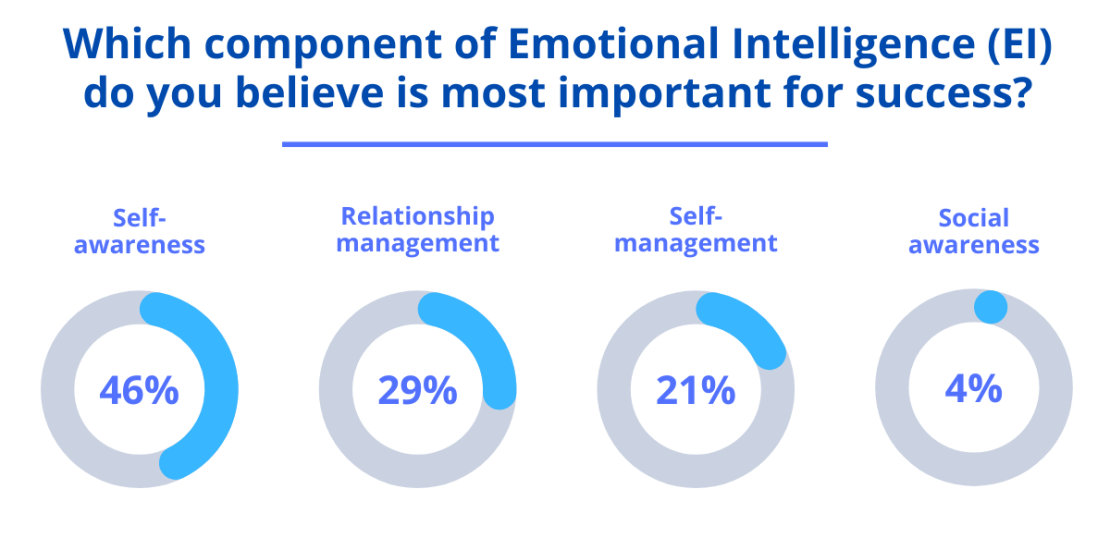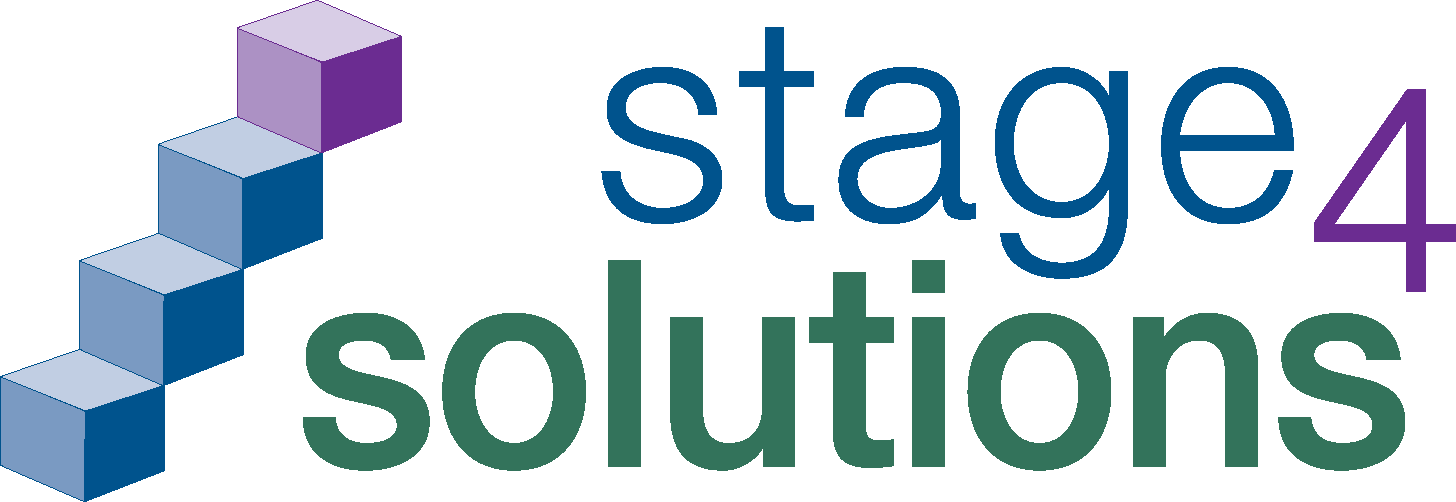Navigating Success: The Role of Emotional Intelligence
- November 14, 2023
- Posted by: Stage 4 Solutions
- Category: Blog

The importance of Emotional Intelligence (EI) in both personal and professional success cannot be overstated. While traditional intelligence, as measured by intelligence quotient (IQ), is essential for logical thinking and problem-solving, EI plays a crucial role in navigating the complex landscape of human interactions. According to research conducted by Harvard Business School, emotional intelligence is considered one of the most sought-after interpersonal skills in the workplace. In fact, 71 percent of employers place a higher value on emotional intelligence than on technical skills when evaluating candidates.
In our recent poll, we asked our professional network to weigh in on the components of Emotional Intelligence to identify which aspect they believe is most vital for success.
Which component of Emotional Intelligence (EI) do you believe is most important for success? (single answer)
- Self-awareness 46%
- Relationship management 29%
- Self-management 21%
- Social awareness 4%
Nearly half of the respondents emphasized the importance of self-awareness in achieving success. Self-awareness involves recognizing one’s own emotions, strengths, and weaknesses, as well as understanding their influence on human interactions. This foundational element of EI serves as a foundation for both personal and professional growth.
By being in tune with their emotional triggers and responses, individuals can make informed decisions and better manage their reactions in the workplace. This, in turn, facilitates the development of positive relationships with colleagues, superiors, and subordinates, which are essential for advancing professionally and achieving organizational goals. Leaders who possess self-awareness exhibit a superior ability to acknowledge and regulate their own emotions, enabling them to navigate challenging situations more effectively.
29% of respondents highlighted the significance of relationship management for success. This pillar of EI involves the ability to navigate and nurture positive interactions with others, fostering effective communication, collaboration, and conflict resolution. In a professional setting, where teamwork and interpersonal dynamics play a pivotal role, adept relationship management can significantly impact an individual’s success. Those who excel in this aspect of emotional intelligence are adept at building strong professional networks, managing conflicts diplomatically, and inspiring others through effective leadership.
21% of respondents voted self-management as the most important aspect. Self-management is the ability to regulate one’s own emotions and behaviors effectively. This is essential for maintaining composure in challenging situations, avoiding impulsive reactions, and demonstrating emotional maturity. It is a key component in building resilience and adaptability, both of which are crucial in the face of adversity or stress.
Professionals with strong self-management skills are adept at staying focused on long-term goals, demonstrating adaptability, and maintaining a positive attitude. This not only contributes to personal well-being but also influences how others perceive and collaborate with them. In the professional arena, where demands are multifaceted and stress is commonplace, the ability to master one’s own emotions is a vital asset.
Only a small fraction of respondents emphasized social awareness as the most important aspect of Emotional Intelligence. Social awareness involves recognizing and understanding the emotions of others, including their needs, concerns, and perspectives. This is essential for effective communication, empathy, and building positive interpersonal relationships. Those who excel in social awareness can anticipate and address conflicts proactively, creating a harmonious work environment.
It is without any doubt that Emotional Intelligence is a vital skillset for achieving success. While self-awareness takes the lead, it’s important to remember that all components of EI are interconnected and contribute to a well-rounded, emotionally intelligent individual. With a profound self-understanding, relationship management, self-management, and social awareness become more accessible and meaningful. Developing these skills can lead to more effective communication, better decision-making, and stronger relationships, all of which are key drivers of success in life and work.

